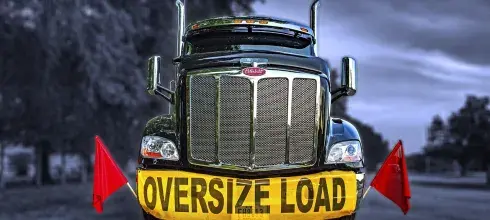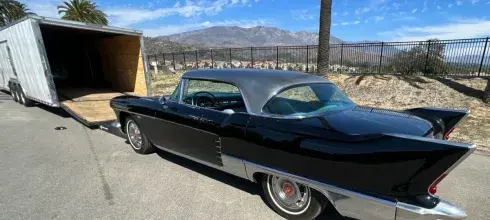Buying a car in another state can be a great idea, but there’s more to it than, say, buying a piece of furniture in another state. With a patchwork of laws that vary a lot from one state to the next, the legalities can get a little complicated and confusing. Here’s what you need to know if you’re planning on purchasing a car out of state.
What to Know Before Buying a Car in Another State
Can You Buy a Car from Another State?
Yes, you can buy a car in another state. People do all the time; sometimes it might be a vintage car or a rare model at a price that’s too good to pass up. Used car prices can also fluctuate due to supply and demand, and different states have different pricing structures, hence maybe a better price to drive a car off the lot and get it home
Important Documents Needed for Out-of-State Car Purchase
This is where things get tricky, because not all of these will apply for every state or every transaction:
- Current driver’s license
- Proof of residency (bank statement, utility bill or other documentation)
- Proof of insurance
- Sales tax forms (depending on your home state, you may be required to pay sales tax at time of purchase)
- Registration forms (for your home state)
- Temporary registration or permit (to buy a car out of state in some states, you may need to see their DMV and get a temporary registration to get the vehicle home)
- Vehicle inspection certificate (again, not all states require an inspection for a car to be legal)
- Payment method (cash, cashier’s check, money order, bank transfer)
State Sales Tax and Registration Requirements
If your state has a sales tax, you’ll be required to pay that tax if you expect to be able to register the vehicle in that state. Make sure that the bill of sale has a space for the sales tax amount.

If your state has emissions requirements, you’ll need to be sure that the vehicle you just purchased is compliant in order to get inspected and registered. Then again, some states also stipulate that vehicles older than a certain age are exempt from emissions requirements, which could get you off the hook if you’re buying a vintage car. In states that require a safety inspection before you can register your car, make sure that it’s ready for that as well. A temporary permit or registration might apply for you to be able to legally get the vehicle back to your home state (again, this can vary state by state).
Pros and Cons of Buying a Car in Another State
PROS:
- Dealer prices can be better in another state, with factory incentives that might not be available where you live
- For used vehicles, the supply and demand equation might be better in a nearby state
- For new vehicles, the selection might be better at a dealership in another state
CONS:
- You’ll have the expense of getting the vehicle back home again, either by driving or via auto transport
- If you’re buying a vintage car, it might not be roadworthy or 100% reliable for a drive of several hundred miles
- Red tape and legalities can vary from one state to another
- You’ll probably need to let a third party company handle transfer of title, which will mean an extra fee
- You might also need to budget for one-way plane fare and lodging
- Make sure the title is clear of liens and encumbrances
Challenges You May Face When Buying Out-of-State
There’s still a bit of a “pig in a poke” situation when buying a car out-of-state and sight-unseen. That’s less of a concern with a new car, but imagine getting to where the vehicle is, inspecting it and finding out its condition has been misrepresented to you.
You’ll also need to set up insurance for that vehicle at the time of purchase, and most states allow a 30-day window of time to get registration done (otherwise, fines might apply). You should get insurance quotes for the new vehicle before you even go to check it out. Also, if you’re financing the car, the lender might have specific insurance requirements you’ll need to meet.
Financial Considerations for Out-of-State Car Buyers
- Sales tax for the state where you intend to register the car
- Local excise tax (in some states)
- Title transfer fees
- Travel costs
- Shipping costs, or fuel costs if you drive the car back yourself
- Third-party inspection for condition

How to Buy a Car from a Dealer in Another State
Researching Out-of-State Dealerships
You should use the same due diligence to find out about an out-of-state dealership as you would for any other dealer. Look at online reviews, customer testimonials, BBB rating and the usual sources you’d use to vet a dealership. This is less of an issue with new car dealers, but obviously it can get dicey with used car dealers and note lots.
Steps to Finalize the Purchase with a Dealer
If you’re purchasing from a dealer, this wouldn’t be much different than it would in your own state. You’ll need an odometer disclosure (for a used vehicle), VIN verification, financing paperwork and formal bill of sale. Remember your insurance coverage when you get a temp permit to get the car home.
Handling Financing and Paperwork Remotely
Dealerships will usually be happy to help with this, so they can close a sale. Just ask a lot of questions, keep communication open and review everything carefully before signing.
How to Buy a Car from a Private Seller Out of State Safely
Verifying the Vehicle’s History and Condition
Carfax and similar services (Bumper, Auto DNA, KBB) have taken a lot of the guesswork out of verifying a vehicle’s history. Just enter the VIN and it will show recall history, ownership history, service history (limited), recalls and any title issues. You can also ask the seller to provide video and extensive photos, which are standard for purchasing a car through eBay. If in doubt, consider getting a third-party inspection.
Negotiating Price and Payment Methods with Private Sellers
This isn’t much different from any other transaction - it’s offers and counter-offers. And as always, cash does a lot of talking.
Legal and Regulatory Issues When Buying from Private Sellers
- Make sure the vehicle has a clear title
- If the vehicle is still being financed, make sure the lender is in the loop
- If possible, ask the seller to provide the title at time of purchase
Transporting Your Out-of-State Car Home
Options for Driving the Car Back vs. Shipping
If you’re buying a new or late-model vehicle, the drive back can be its shakedown cruise. For a vintage car, though, the drive back could be a roll of the dice if it’s not reliable; that’s when you should consider shipping instead. Either way, the costs of driving or transport will need to be budgeted into your total.
Costs and Considerations for Vehicle Transport
Transport can be a pretty good deal if you’ve got concerns about the car’s reliability. Different transport options are available, and for long-haul logistics, the cost/mile ratio usually goes down.
Insurance Requirements During Vehicle Transportation
If the car’s on a trailer, obviously you won’t need insurance…but if you’re driving, you’ll need the car on your policy the moment you get behind the wheel. Lenders will usually require full coverage insurance.

Sales Tax and Fees for Out-of-State Car Purchases
How State Sales Tax Works for Out-of-State Purchases
Remember, you’re paying your state’s sales tax on the purchase, not the state in which you’re buying the car.
Transfer and Registration Costs by State
Transfer of title usually costs no more than about $50 (with a possible surcharge for a title with a lien), but that cost goes up after 30 days. Registration costs can vary according to vehicle age, type and state.
Vehicle History Reports: A Must for Out-of-State Purchases
Why Checking the Vehicle’s History is Crucial
Would you buy a vehicle in your home state without an inspection and history check? Of course not, and an out-of-state vehicle purchase is no different.
Red Flags to Look for in Vehicle History Reports
- Flood damage
- Collisions
- Repairs
- Recalls
How to Handle Vehicle Registration After Buying Out of State
Transferring Title and Registering Your Vehicle in Your State
Transfer of title process can vary state by state; in many cases, it’s best to leave this to a title service. Registration should be pretty straightforward after you’ve got a signed (but not transferred) title, bill of sale, insurance and inspection.
Timeframes for Completing Registration
Potential Penalties for Delayed Registration
Many states will impose a fine for delaying registration by more than 30 days.
Avoiding Scams When Buying a Car Out of State
Recognizing Common Scams in Out-of-State Car Purchases
These are all red flags:
- Fuzzy pics or a dodgy description
- Excessive pressure to close the deal
- Unusual payment methods such as wire transfer
- Too-good-to-be-true pricing
- Fake escrow services
Trust your gut!
Safe Payment Methods for Long-Distance Transactions
It’s best if you can arrange payment at the time of purchase and pickup; cash, bank transfer or money order are best.
How to Verify a Seller’s Legitimacy Remotely
Unfortunately, this is still a “buyer beware” situation. An eBay seller will have a rating and customer feedback, and of course it’s a lot easier with dealers. Again, let your instinct and gut do the work for a purchase from an individual.
Legal Considerations for Buying a Car in Another State
Understanding State-Specific Laws
When it comes to a state-by-state understanding, you’re best to thoroughly research the laws on the books in your home state and the state in which you’re purchasing the car. There’s too much variation in these laws from one state to another to easily break it all down here!







